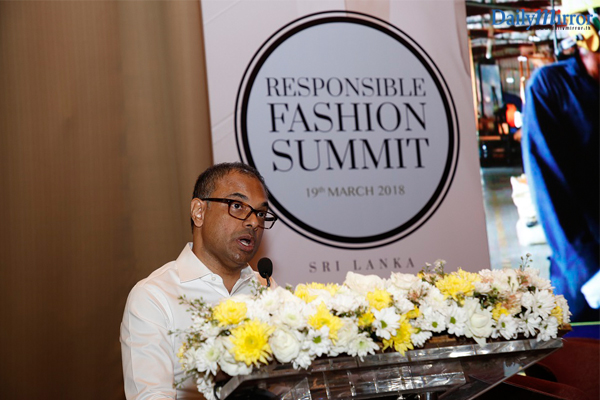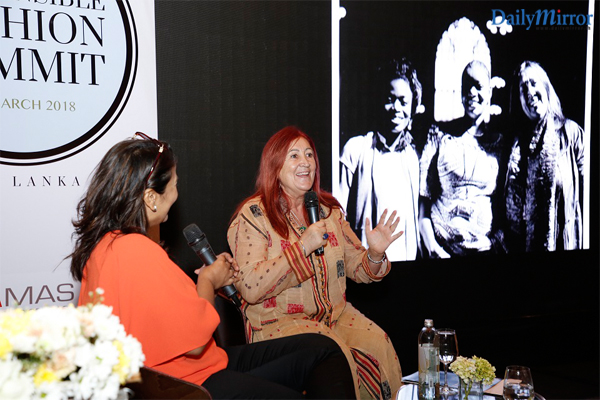Reply To:
Name - Reply Comment
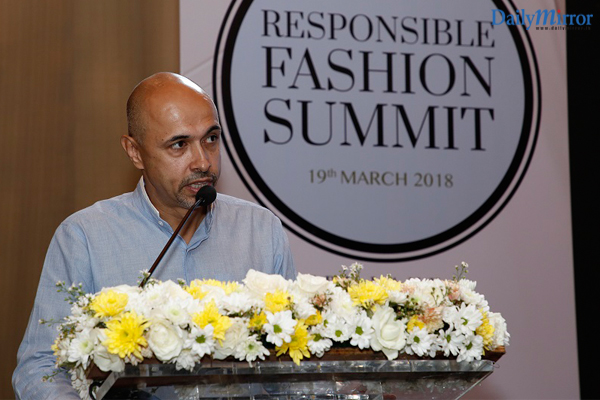
Responsible Fashion Summit, the unique platform for thought leadership, with a strong agenda to focus on action, and as part of the bigger Responsible Fashion Movement, kicked off with impact, with strong speakers, important case studies and the way forward which will also showcase Sri Lanka as a destination which has a responsible fashion supply chain and sourcing.
This unique format showcased 08 impacts that are conceptualised to showcase the solutions to the issues faced by the global fashion industry.
“The 08 impacts that we defined are current and very pertinent as pillars to build solutions on, it’s also very current, it covers areas from Design to Disposal, it includes production, retail, community, designers, every stakeholder of the supply chain. This makes this movement unique and this summit as the platform where knowledge of subject matter experts is converted into action, we have given a 5 year plan, almost like a report card to see our progress every year. Sri Lanka has the advantage and can take the lead engaging and including global stakeholders. This structure has a format to evolve with solutions. Very excited with this.” Says Ajai V Singh, Founder of The Responsible Fashion Movement
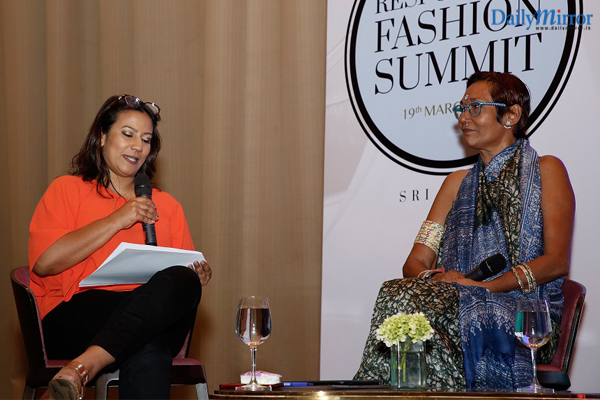
The overall vison of the Responsible Fashion Movement is to encourage the stakeholders, in an inclusive manner, to be Responsible, to stay Accountable and together make the fashion Clean. The global fashion industry currently reels under enormous pressure as it has been consistently creating negative impact to the society and the environment. The countries in different regions of the world are grappling with the issues and this a need to come up with solutions, the reality also is that issues in different parts of the world are different, based on what part of the supply chain they belong to, and the environment they live in.
Sri Lanka has enjoyed high compliance standards since last few years and more companies are joining in to meet the compliance standards, it has managed to set the benchmark in the region. The Responsible Fashion Movement aims to take this forward by creating an eco-system from Design to Disposal and open this eco-system to any brand or organisation in the world to engage and use the fashion supply chain to make positive impact.
The first edition of the Responsible Fashion Summit, saw three panel presentations, staring with the UNESCO Ambassador and a global fashion icon Bibi Russell, who is highly celebrated globally for her work in developing communities under the banner fashion for development. She focused on including communities in fashion and lifting their profiles and commercial engagement for their upliftment.
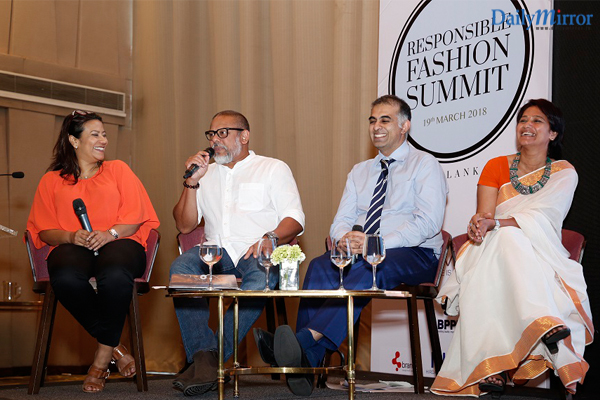
The second panel was very informative it focused on the role of manufacturing in Responsible fashion where Sri Lankan leaders spoke of their initiatives and presented case studies as open sources for others to replicate, the panel consisted of the visionary Sarinda Unamboowe of MAS, Anusha Alles of Brandix and Nikhil HIrdaramani of the Hirdaramani Group.
Dr Anush Amarasinghe MD of the Beira Group made a special presentation the innovative recycling project of PET to yarn.
Ms Dinali Peiris presented on the famous Go Beyond program.
The third and the final panel was with the UK based international fashion and PR personality Lynne Franks, OBE, who among other projects started London Fashion Week. She focused on Consumer and retail traction towards consuming responsible fashion.
Orsola De Castro, the founder of the Fashion Revolution, and Katherine Hamnett, the British designer who made famous the “political statement t-shirt”, sent their video endorsements.
The final presentation was done by the teams that participated in Sri Lanka’s First Fashion Hackathon “Making of the Green Tee”, an initiative that was started by the Responsible Fashion Movement last year, engaging fashion design students from universities all over Sri Lanka to design an eco-friendly t-shirt.
The 4 teams presented their garments and received feedback from the likes of important industry personalities like Bibi Russell and Lynne Franks. The 4 teams created 4 t-shirts impacting the 8 pillars of the Responsible Fashion Movement from design to disposal.
